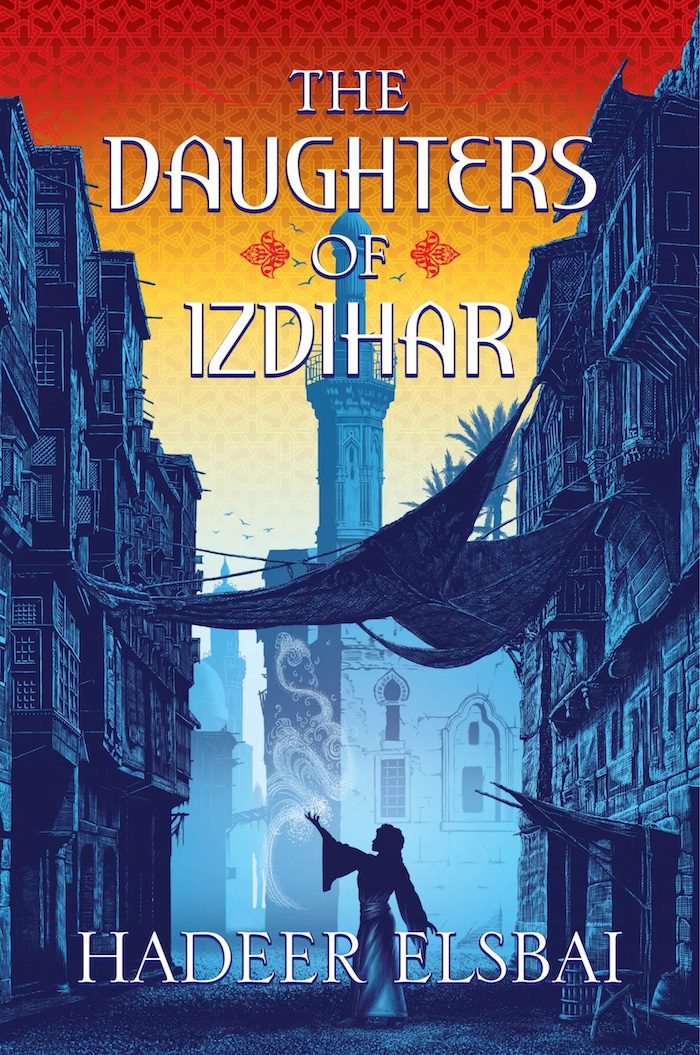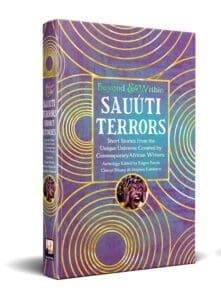
SYNOPSIS:
From debut author Hadeer Elsbai comes the first book in an incredibly powerful new duology, set wholly in a new world, but inspired by modern Egyptian history, about two young women–Nehal, a spoiled aristocrat used to getting what she wants and Giorgina, a poor bookshop worker used to having nothing–who find they have far more in common, particularly in their struggle for the rights of women and their ability to fight for it with forbidden elemental magic
As a waterweaver, Nehal can move and shape any water to her will, but she’s limited by her lack of formal education. She desires nothing more than to attend the newly opened Weaving Academy, take complete control of her powers, and pursue a glorious future on the battlefield with the first all-female military regiment. But her family cannot afford to let her go–crushed under her father’s gambling debt, Nehal is forcibly married into a wealthy merchant family. Her new spouse, Nico, is indifferent and distant and in love with another woman, a bookseller named Giorgina.
Giorgina has her own secret, however: she is an earthweaver with dangerously uncontrollable powers. She has no money and no prospects. Her only solace comes from her activities with the Daughters of Izdihar, a radical women’s rights group at the forefront of a movement with a simple goal: to attain recognition for women to have a say in their own lives. They live very different lives and come from very different means, yet Nehal and Giorgina have more in common than they think. The cause–and Nico–brings them into each other’s orbit, drawn in by the group’s enigmatic leader, Malak Mamdouh, and the urge to do what is right.
But their problems may seem small in the broader context of their world, as tensions are rising with a neighboring nation that desires an end to weaving and weavers. As Nehal and Giorgina fight for their rights, the threat of war looms in the background, and the two women find themselves struggling to earn–and keep–lasting freedom.
REVIEW:
The Daughters of Izdihar is a tale of conflict, tradition against non-traditionalism, and the right to equality against the menacing tentacles of power and politics. It is the tale of women fighting for equality in a society that does not see them as equal. This is something I have seen in my own culture too, coming from an Indian background. What I have found fascinating about the entire debate regarding equality is how often it can get mired in the dense and dark underworld of politics. Do not doubt this, this is a fantasy world inspired by in my estimation, a 19th-century version of Egypt.
The story undoubtedly focuses on the Daughters of Izdihar, a group fighting for the right to fight alongside the army of Alaxama. Their goal is simple, to raise the rights of women and to have better rights. Yet there is a patriarchal society that prevents this from happening. At the same time, I felt the central character of this story was Nico. The main character for me was Giorgina, a brave woman who has to deal with the intolerance of her father, Abas, and other men that do not respect her. Yet she persists, she is determined, and she holds out. It is her determination and her scholarly knowledge that makes her a fantastic character. There is more to her than we know. Nico may not be bold, or confrontational.
But I felt he often got the short end of the stick, because of his reluctance. But he would make a good husband in my opinion, but the pressures of getting married to Nehal, make him stuck in a marriage that is not beneficial for the both of them. I’ve seen marriages in Indian society where the parents will want to pressure their children into marriages that sure, benefit them, but not the couple personally. It is this stupid style of pressure that prevents society from going forward. And we have Malak Mamdouh, one of the most charismatic characters of all. She does more havoc on society and she is unapologetic in her ways, which makes her an interesting personality to behold. There is a huge range and cast of characters, each having their own flaws, vices, and good in them. There are complex decisions for what the characters do – and in time you understand just how much of a flawed society this is.
I have written about this before in my reviews, but at one point Egypt under Muhammad Ali, Pasha and Governor of Egypt rebelled against the Ottomans in 1830. By this point, the Ottomans were declining and the Greeks declared their wars of independence. Muhammed Ali took advantage of this chaos and came all the way to the gates of Constantinople, or Istanbul. European pressure however prevented him from doing so. During the years, the British took over Egypt and deposed him of his rule. I’ll not go into specific detail, but the main thing is that Egypt had a mini-golden age. It was going into an era where it would have rivaled the European Powers. Imagine this fantasy novel as a sort of, what if Egypt had thrown off the shackles of European colonialism. But that potential was robbed.
Because in this novel, you’ll come across police with muskets, legendary foods inspired by the Arabian world, coffee, and more. The world-building is on point in meticulous detail. There is not a moment when you will not wander and experience the world, the rich sights of the cities, the kingdoms, and the politics. It’s an epic tale full of magic as well, and how weaving is considered ‘dangerous’ which I find ridiculous, but at the same to have such power is a blessing in disguise too. One must know how to control what it is. In the end, it is a triumphant tale of women standing up for their rights, but it is a journey of complex decisions and political obstruction that holds Alamaxa back. It is an excellent fantasy novel that you need to check out now.
In the next novel, I’d like to see more of Nico and Nehal, and Giorgina for sure. Nico is bolder, using his power to become the man he will be in the near future. Nehal emerges from the shackles of society and uses her influence to find her way, and Giorgina too forges her own patch, and maybe be with the man that she loves.










Leave a Reply